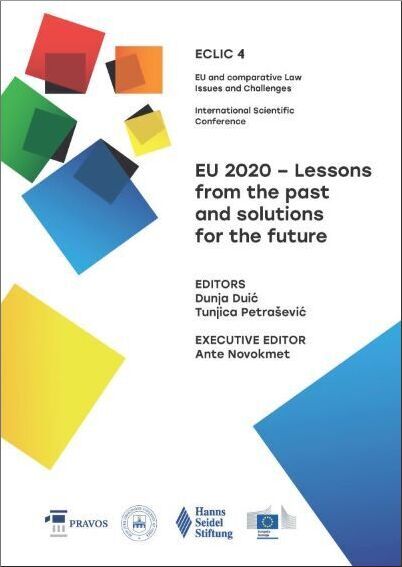A DECADE OF BALANCING WITH EU HUMAN RIGHTS PROTECTION
BETWEEN NATIONAL AND INTERNATIONAL COMPETENCES AND SOURCES OF LAW , INDIVIDUAL AND SYSTEMIC INTERESTS
DOI:
https://doi.org/10.25234/eclic/11894Abstract
The path towards establishing and advancing human rights’ protection within the EU legal system seemed straightforward a decade ago. With the entry into force of the Lisbon Treaty in 2009, the Charter of Fundamental Rights of the EU became part of primary law, together with a commitment of accession to the European Convention on Human Rights. In 2010, Protocol 14 to the ECHR entered into force, allowing the EU to accede to the ECHR. A draft agreement on accession was finalized thereafter. In 2014, however, the Court of Justice of the European Union issued a negative opinion on the draft accession treaty, citing perceived threats to autonomy of EU law, competence of the EU and powers of the Court. A year earlier, in February 2013, the CJEU rendered judgments in cases Fransson and Melloni whereby it provided crucial rules for interpretation of clauses 51(1) and 53, respectively, of the Charter. The field of application of the Charter was equated with the scope of EU law. Primacy, effectiveness and unity of EU law, both primary and secondary, were prioritized over human rights and fundamental freedoms recognized by international agreements, including the ECHR, as well as by the Member States’ constitutions. The realm of fundamental individual rights remains to this day the decisive grounds for asserting the core principle of EU constitutionality: the autonomy of EU law. Accession to the ECHR remains to this day a proclaimed goal of EU governing bodies, but little palpable progress is being made. Protection of fundamental rights at EU level has remained a point of contention among academics. Some question the very need for its existence, in view of constitutional guarantees by Member States and the ECHR. Others, however, claim that the CJEU sacrificed protection of individuals’ rights for the interest of promoting constitutionality of the EU. These critiques seem unwarranted. Article 2 TEU necessitates existence of an efficient mechanism for protection of fundamental freedoms at EU level. Historical examples of political communities built on multi-ethnic, civic model all show necessity of integrating human rights protection at the constitutional level. Constitutionality of the EU has been developing for six decades, for the most part under the guise of autonomy of EU law. It requires that primacy of fundamental rights, as guaranteed by EU law, be affirmed both vis-a-vis Member States and international treaties. However, one may not expect that fundamental rights and freedoms within the EU be protected in a uniform and efficient manner unless a system for enforcing such rights and freedoms is not put in place first.
Downloads
Published
How to Cite
Issue
Section
License
Copyright (c) 2020 Maja Lukić, Bojana Čučković

This work is licensed under a Creative Commons Attribution-NonCommercial 4.0 International License.
Authors retain the copyright on the papers published in the Journal, but grant the right of first publication to the Journal. Papers accepted for publication or already published in ECLIC of the Faculty of Law in Osijek may be published by the author(s) in other publications only with proper notice of its previous publication in ECLIC.


